 CEO pay may be increasingly coming under the microscope these days, but real estate’s top NYC executives are still raking it in.
CEO pay may be increasingly coming under the microscope these days, but real estate’s top NYC executives are still raking it in.
Although public companies are changing their compensation models to ensure that CEOs don’t get monster pay packages while their companies’ finances falter, so far pay reductions have remained largely at bay.
This month The Real Deal combed through disclosures filed with the U.S. Securities and Exchange Commission to find out just how much some of the industry’s top-paid chiefs are bringing home. The numbers are staggering. The Blackstone Group’s CEO took home nearly $800 million — though that’s with his corporate dividends tallied in. Meanwhile, Elliman’s chairman, Howard Lorber, and General Growth Properties’ CEO, Sandeep Mathrani, racked up $42.5 million and $39.2 million, respectively.
Still, new public disclosures that take effect in 2017 could curb those amounts going forward.
The SEC regulations will require public companies to publish ratios comparing their CEO’s pay with the median pay for their workers.
And if that weren’t enough to rein in compensation, political pressure is also mounting.
Democratic presidential candidate Bernie Sanders has made the issue a central one on the campaign stump. “The average chief executive in America now makes nearly 300 times more than the average worker — and the gap between the people at the top and working families is growing wider and wider,” he said recently.
There’s also sluggishness in the REIT sector that’s prompting public real estate firms to at least think twice before dishing out giant salaries with no strings attached.
Together these three realities have prompted many public real estate companies to retool their compensation models to ensure that their CEOs are rewarded only when their companies do well. More specifically, companies are upping the percentage of executive compensation that’s considered “at risk,” meaning that it’s awarded only if executives deliver on performance goals.
“A number of companies have transitioned from old structures to more measurable ones that pay out based on coherent, multi-faceted results,” said Alexander Goldfarb, a REIT analyst at investment bank Sandler O’Neill + Partners. “They’re putting in performance metrics and measurable goals.”
It’s a fine line to walk since companies need to keep compensation and incentive packages lucrative in order to recruit and retain talent.
Still experts and analysts say real estate CEOs can’t be lining their pockets with millions of dollars a year while their investors absorb losses.
Of course, private firms like Related Companies and Extell Development are not subject to the same levels of scrutiny since they’re privately held and do not have the same obligation to investors.
Read on for a closer look at what some of the top-paid industry bigwigs are making — and how their pay formulas are changing.
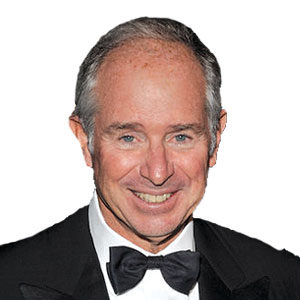
Stephen Schwarzman
Stephen Schwarzman:
$799.2 million (including dividends)
Blackstone Group
Turbulence in both the financial and real estate markets didn’t put a dent in Stephen Schwarzman’s 2015 bottom line — or in his private equity fund’s performance.
The co-founder and CEO of private equity and real estate giant Blackstone racked up nearly $800 million in compensation and dividends derived from his ownership stake in the company.
Schwarzman’s base salary — which has been just $350,000 since the firm went public in 2007 — is just a starting point for what he earns in a given year.
The mogul also took home $88.3 million in firm profits through carried interest payouts, a whopping $644.8 million in dividends, and other various extras. That added up to $799.2 million in total compensation, up from $689.3 million the previous year, regulatory filings show.
However, a huge chunk of that pay comes from the skin Schwarzman has in the game: He owns about 20 percent of the company.
While Schwarzman is one of the largest shareholders in the company, all named Blackstone executives officers are required to personally invest alongside the funds the company manages. “We believe this strengthens the alignment of interests between our executive officers and the investors in those investment funds,” the company recently said in an SEC filing.
The company did not disclose a salary for its real estate chief Jon Gray, but he is no doubt doing just fine on the compensation front. His division has been firing on all cylinders. Late last year Blackstone acquired the massive Lower East Side apartment complex Stuy-Town for $5.3 billion alongside Ivanhoe Cambridge, a move that helped boost its real estate assets under management to over $100 billion.
Schwarzman, meanwhile, has enjoyed the benefits of his massive payouts for years. For his 60th birthday in 2007, he took over the Park Avenue Armory and had Patti LaBelle sing him “Happy Birthday.” Rod Stewart, Donald Trump and Barbara Walters were also there. He’s also donated huge sums to the likes of the New York Public Library ($100 million in 2008) and his alma mater Yale University ($150 million in 2015).
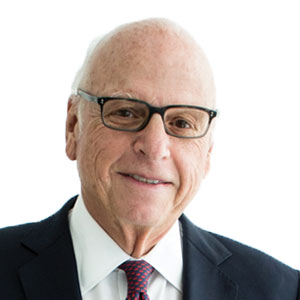
Howard Lorber
Howard Lorber:
$42.5 million
Vector Group
Douglas Elliman chairman Howard Lorber saw his total compensation jump 40 percent last year from 2015 as revenue from his real estate operations soared.
His total package came to a whopping $42.5 million.
That broke down into a base salary of $3.1 million, stock awards totaling upwards of $30 million and various other non-equity awards and options.
The figures were outlined in a March 25 proxy statement filed with the SEC by Elliman’s parent company, Vector Group Ltd., where Lorber is president and CEO.
Lorber’s contract with Vector, which was renewed last November, states that the board can periodically increase his salary — but can’t lower it. Lorber is also eligible for a bonus of 100 percent of his base salary. Even if he’s fired, Lorber would continue to receive his $3.1 million base salary for 36 months plus the average amount of his last three bonuses during those three years. In addition, all his outstanding equity awards could be vested, according to the SEC filing.
Lorber declined to comment on his compensation, but insiders told TRD that the $42 million is artificially inflated by the CEO’s stock awards, which were given this year but vest gradually over the next decade. In other words, those funds are promised but have not yet been delivered in full.
Lorber is also entitled to various benefits, including a full-time company car and driver, a $7,500-a-month allowance for hotel stays, two club memberships as well as use of the corporate aircraft.
Meanwhile, Lorber also sits on the board of the hot dog giant Nathan’s Famous, which paid him $616,000 last year for serving as the chair of its board.
Lorber, it seems, does not need to be too concerned about a performance-based pay reduction — at least for now. The real estate part of his empire has been doing well: Elliman reported revenues of $637 million in 2015, a 17 percent increase year over year.
And Lorber has clearly been in a celebratory mood. He recently shelled out $15 million for a pad at 432 Park Avenue (see related story on page 52).

Sandeep Mathrani
Sandeep Mathrani:
$39.2 million
General Growth Properties
General Growth Properties’ CEO Sandeep Mathrani has come a long way since emigrating from India 37 years ago by himself at age 16.
The executive famously got his first taste of the real estate business after selling his Nissan Sentra to raise funds to buy an apartment.
That’s a far cry from where he ended 2015. The CEO wrapped up the year with the promise of full pockets, thanks to his $39.2 million compensation package.
That hefty payout from the mega-mall operator included two massive stock awards — one for $25 million and the other for $10 million after Mathrani inked a new contract last year, according to SEC filings. However, most of that cash won’t vest until 2020, meaning that he won’t see all of it unless he stays at the firm and hits his performance targets for the next four years.
Mathrani’s actual base salary was $1.2 million. He also took home an additional $3 million bonus in addition to his stock awards.
But his compensation was contingent on his hitting several performance targets in 2015.
The firm — which bought the Crown Building in Midtown for $1.75 billion in partnership with Jeff Sutton in December 2014 — wanted him to increase mall occupancy nationwide, locking in new leases at rates 10 percent higher than exiting ones, and add to the firm’s new development pipeline.
Mathrani is the only executive officer at GGP who is not an “at-will” employee, meaning he’s guaranteed a so-called golden parachute or payout if he’s fired without reasonable cause.
Mathrani had jumped to GGP from Vornado in 2010 to help restructure the firm as it emerged from a high-profile bankruptcy. Last year, the firm sold the fourth through 24th floors of the Crown Building to Michael Shvo and Russian developer Vladislav Doronin for about $500 million.

David Neithercut
David Neithercut:
$12.7 million
Equity Residential
Sam Zell may be the face of Equity Residential, but he doesn’t bring home as much as his top underling.
The REIT’s CEO, David Neithercut, took home $12.7 million last year — $11.8 million of which is tied to his performance over the next three years at the company, according to SEC filings. Yes, Neithercut, who was named CEO in 2005, gets the vast majority of that cash only if he meets certain targets.
Still, his pay is close to four times the $3.3 million pocketed by Zell, chairman of the company’s board, in 2015.
Last year was a strong one for Equity Residential. It ended the year with annual revenue growth of 5.1 percent, filings show. That bottom-line figure was boosted by the sale of 72 properties nationwide consisting of 23,262 apartment units to Starwood Capital Group for $5.37 billion. The deal, which took place last October, generated an 11 percent return.
But had that deal flopped, executive salaries could have taken a hit.
“The compensation committee believes that as the responsibilities of our executives increase, the proportion of their total compensation that is ‘at risk’ and dependent on the company’s performance should also increase,” the company said in filings.
Meanwhile, Zell is the only member of the board whose travel expenses are not covered by the company. His retirement benefit comprises a minimum $500,000 annual payment for a 10-year period — unless he’s fired for a reasonable cause.
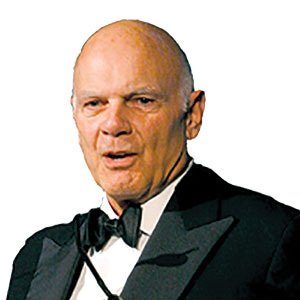
Steve Roth
Steve Roth:
$10.9 million
Vornado Realty Trust
Despite a relatively weak stock performance in 2015, Vornado Realty Trust ponied up $10.9 million in compensation to CEO Steve Roth last year — his biggest annual pay package ever.
His package, a 10.7 percent year-over-year increase, included a $1 million base salary; a $1 million cash incentive for hitting goals; $3.8 million in long-term equity compensation and more than $5 million in so-called OPP awards, which are stock options tied to his performance over a five-year period, according to SEC filings.
While Vornado did not respond to a request for comment, the public filings noted that Roth’s base salary had remained unchanged for more than a decade and attributed his rise in compensation to an increase in the accounting value of the OPP awards. It also justified the hike by pointing to upticks in two key measures for its bottom line: EBITDA (earning before interest, taxes, depreciation and amortization) and funds from operations, which is a common measure of performance for REITs.
“We believe that the quality, skills and dedication of our named executive officers are critical factors that affect the long-term value of the company,” the firm stated.
 Roth is the only named executive at Vornado who does not have a formal employment agreement. He also does not have a golden parachute so he’s not guaranteed a large payout if he’s fired as the result of a merger or takeover.
Roth is the only named executive at Vornado who does not have a formal employment agreement. He also does not have a golden parachute so he’s not guaranteed a large payout if he’s fired as the result of a merger or takeover.
Roth’s underlings haven’t done too shabbily, either. David Greenbaum, president of the New York division at Vornado, pocketed a total of $5.7 million last year, including a base salary of $1 million.
Vornado competitor SL Green was not included in this story because its most recent available disclosures were from 2014. But that firm faced some criticism from the investment community last year for awarding CEO Marc Holliday a $16.4 million compensation package in 2014 — a nearly 30 percent increase over the prior year.

Richard Smith
Richard Smith:
$9.1 million
Realogy
Realogy CEO Richard Smith, whose company oversees residential real estate firms such as the Corcoran Group, Citi Habitats, Sotheby’s International Realty, Century 21, ERA and Coldwell Banker racked up $9.1 million in compensation for 2015, according to SEC documents.
That package included a $1 million base salary (which has remained unchanged since 2006) plus bonus and stock awards.
Smith’s contract, which expires next year, states that he’s eligible to receive a bonus of 200 percent of his annual base salary, or $2 million — if he meets various performance goals.
But since some of the company’s 2015 goals were not met and its stock price dropped, its executives, including Smith, didn’t pocket all the cash incentives they could have.
In an SEC filing, the company noted that 89 percent of its CEO’s direct compensation for 2015 was considered “at risk” because those executives had not met their goals. It touted that new system for protecting shareholders’ capital.
“These compensation losses in value were greater than the 18 percent decline in our stock price in 2015, and exemplify the strong alignment of our compensation practices with stockholder value creation,” the company said.
Salaries for New York executives such as Corcoran CEO Pam Liebman and Citi Habitats head Gary Malin were not disclosed.

Owen Thomas
Owen Thomas:
$8.8 million
Boston Properties
Boston Properties CEO Owen Thomas raked in about $8.8 million last year, up from $6.4 million in 2014. That package includes a base salary of $773,077, a $2.6 million bonus and $5.4 million in stock awards.
In making its decision to up Thomas’ pay package, the company’s compensation committee noted his “strong leadership” in setting the firm’s strategic direction following former company chief Mort Zuckerman’s transition to a chairman role. It also noted that his compensation had been below the industry standard.
“Based on these considerations, the compensation committee made a meaningful adjustment to increase Mr. Thomas’ compensation to bring it closer to, although still below, the median,” the company said in filings.
Meanwhile, Zuckerman announced earlier this year that he’s stepping down permanently from his role as chair of the company, which he founded in 1970, and would not seek reelection to its board of trustees. He took home $3.9 million last year for his role as chair in 2014.
Among its current projects, Boston Properties is one of the developers behind a planned 675,000-square-foot office building to be anchored by WeWork at the Brooklyn Navy Yard.
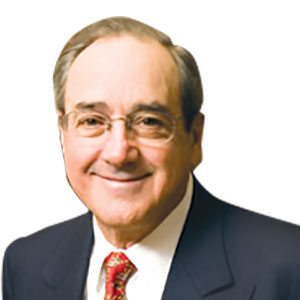
Bob Toll
Bob Toll:
$8 million
Toll Brothers
Toll Brothers’ chairman, Bob Toll, took home $8 million in compensation in 2015, a dip from the $9 million he made a year earlier, despite a strong stock performance by Toll. The company posted revenues of $4.2 billion last year, up 7 percent from a year earlier.
The company founder also made less than Douglas Yearley — who was promoted to CEO in 2010 after 20 years at the firm and took home $9.8 million in total compensation in 2015.
Both Toll and Yearley have base salaries of $1 million.
In December, Toll Brothers announced that it, too, would revise its compensation program to better match performance. Its initiatives include instituting longer waiting periods before the executives are eligible for performance-based stock payouts — a measure designed to encourage prolonged periods of growth.
In New York, the company is headed by David Von Spreckelsen, whose compensation was not publicly disclosed. The company’s local division is developing projects such as the condo at 400 Park Avenue South and the high-end condo Pierhouse in Dumbo.
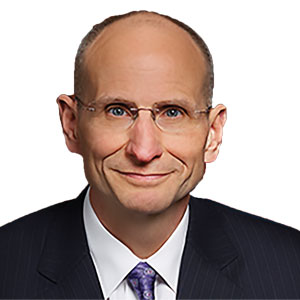
Robert Sulentic
Robert Sulentic:
$7.7 million
CBRE
Global CBRE chief Robert Sulentic took home $7.7 million last year, up from $6.4 million in 2014, thanks in part to a record year for the mega brokerage.
CBRE reported revenues of $10.9 billion in 2015, an increase of 20 percent year over year.
Sulentic’s pay packet included a $967,500 base salary, a $607,130 bonus, $4.1 million in stock awards and close to $2 million in non-equity incentives.
His compensation was tied to key factors including developing the brokerage’s senior leadership team and implementing a client relationship program, according to filings the company submitted to the SEC.
Sulentic joined the company in 2006 through the firm’s acquisition of brokerage, development and investment firm Trammell Crow, where he had served as CEO. He nabbed the CEO spot in 2012 after Brett White resigned.

Anthony Malkin
Anthony Malkin:
$3.5 million
Empire State Realty Trust
Empire State Realty Trust CEO Anthony Malkin took home significantly less compensation in 2015 than he did the previous year. That was despite delivering on several key performance goals set by a dedicated “compensation advisory committee,” which makes recommendations on salaries based on a review of compensation structures at 13 other public REITs.
The CEO — whose company controls trophy properties such as the Empire State Building, One Grand Central Place and 250 West 57th Street — also pocketed far less than some of his industry counterparts, taking home just $3.5 million last year, down from $4.3 million in 2014, according to SEC disclosures. His compensation included a base salary of $550,000, a $1.2 million bonus, $1.6 million in stock awards and various other payouts.
Malkin has had to disclose his compensation only since 2013, when his company officially became a publicly traded REIT.
“It was the greatest intellectual, physical [and] personal challenge that I’ve ever had in my life,” Malkin previously told TRD of the IPO.
If Malkin were to be terminated by the company without reasonable cause, he’d be entitled to that same annual base salary plus a lump sum of $1.1 million, as well as his average annual bonus, SEC filings show. His stock options could also be cashed in for three years following his departure.
While he may not make more than all his CEO counterparts, he does share a perk with them: a full-time driver. That cost the company nearly $100,000 in 2015.
But not everyone at ESRT gets the same transportation package as Malkin. In lieu of a driver, executive vice president Thomas Durels has a company-paid train ticket, which cost the REIT $6,916 in 2015.
